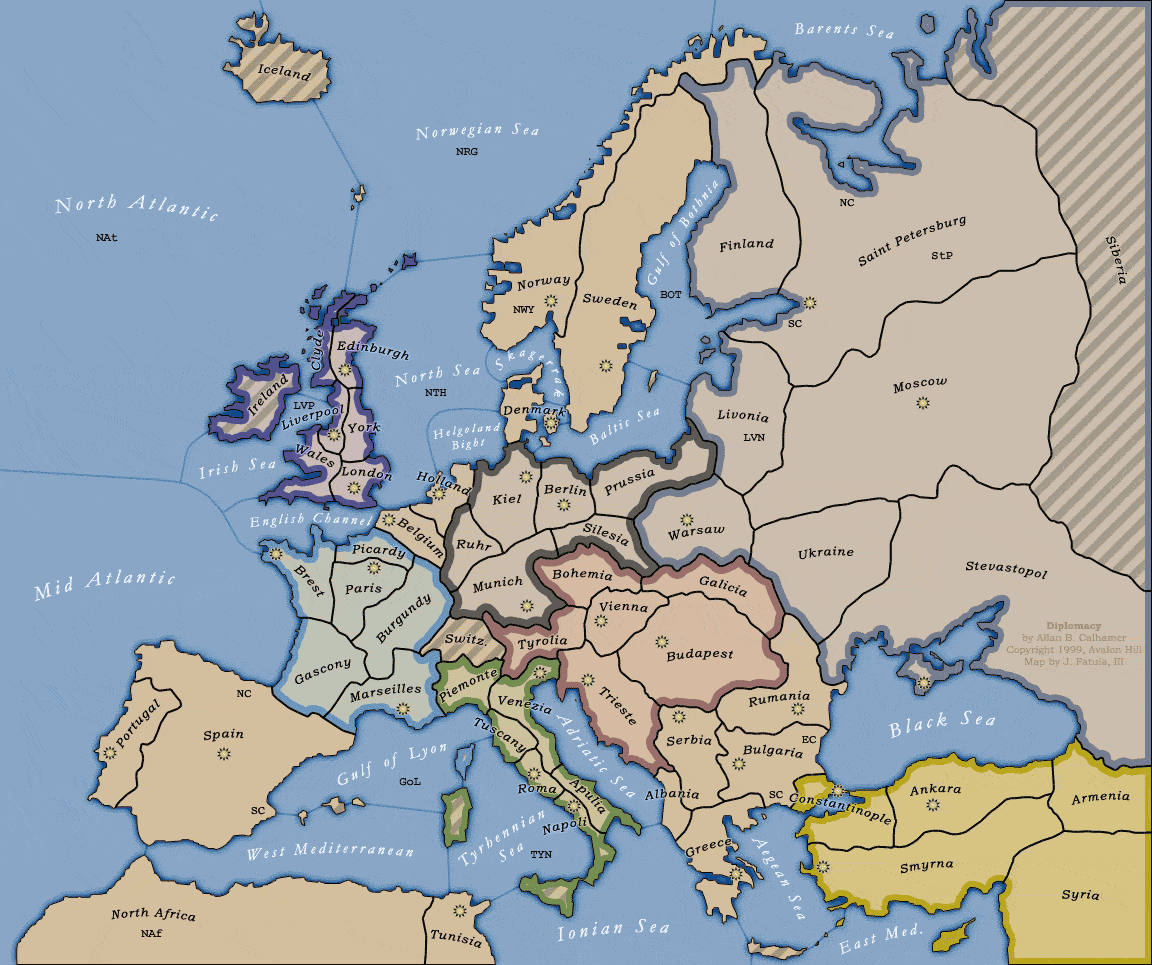 |
| System Sciences sounded appropriate when talking about game design |
I love the board game Diplomacy.
It has so much going for it. Secret orders, simple rules mechanics and a free wheeling player on player interaction where it gets its name from.
It has an aspect that I find both wonderfully amusing and that makes a terribly sad statement about the human condition. You see, if everyone in the game works to their own best interests, no one would ever win.
Why?
In the game, there are 34 "supply centers", areas on the map that let you support units in-game. You start with 3 or 4 of them, and the end goal is to get over 50%, or 18 supply centers for your own country.
 |
| The circles are the supply centers, like Budapest or Moscow. Not all territories have them. |
First, two countries going head to head at the start will usually stalemate and get nowhere. You need allies to help you pick apart your neighbors.
Two, if some country is getting powerful, the other countries combined still have a preponderance of force and should be easily able to contain and even push back the upstart.
But that second thing doesn't always happen, and powerful countries can go on to win. People don't always work in their own best interest, holding grudges for earlier betrayals in the game, letting someone else win.
So how does 34 come into it?
It's a wonderful number, and lets the game be very unstable.
Note, unstable, not imbalanced. Overall, Diplomacy is a very balanced game. My army is just as strong as your army, there's no dice luck to get in the way, etc. Some countries are generally felt to be stronger or weaker due to board position, but even this can be balanced by smart players in negotiations - due to its position, England can be seen as more of a threat than poor surrounded Austria for example.
But there is a great deal of inherent instability in Diplomacy, and there being 34 instead of 33 or 35 supply centers has a lot to do with it.
The game has seven countries and 34 centers they all want.
There's no way to evenly divide 34 by seven - someone gets left out.
Same for six.
And five.
And four.
And three.
Only at two can you get an even split - 17/17. At that point, the game can and sometimes does stalemate between two powers or alliances along some established "stalemate lines" along the board that can only really be broken through betrayals, not by brute force.
Throughout the game until that possible 2-way split (though even that often doesn't happen) the game is unstable - there's always a combination of countries that is more powerful than another combination. And with the way the game is designed, those combinations should be constantly evolving, with people switching sides to keep someone from winning, much like how Britain spent so long trying to maintain the mythical balance of power in Europe.
So why ruminate on this?
Just a thought that while in miniatures gaming we often talk about balance, we should also think about stability. Do we want things to be staid and simply attritional, or do we want things to always be teetering, able to be tipped this way or that through good play? How unstable are the games you enjoy?
absolutely love this game. Its in my board game closet, and is one of the many played here on my once a month Game Night.
ReplyDeleteWould that I could play it more, but it has been quite a while, even for PBEM games.
ReplyDelete